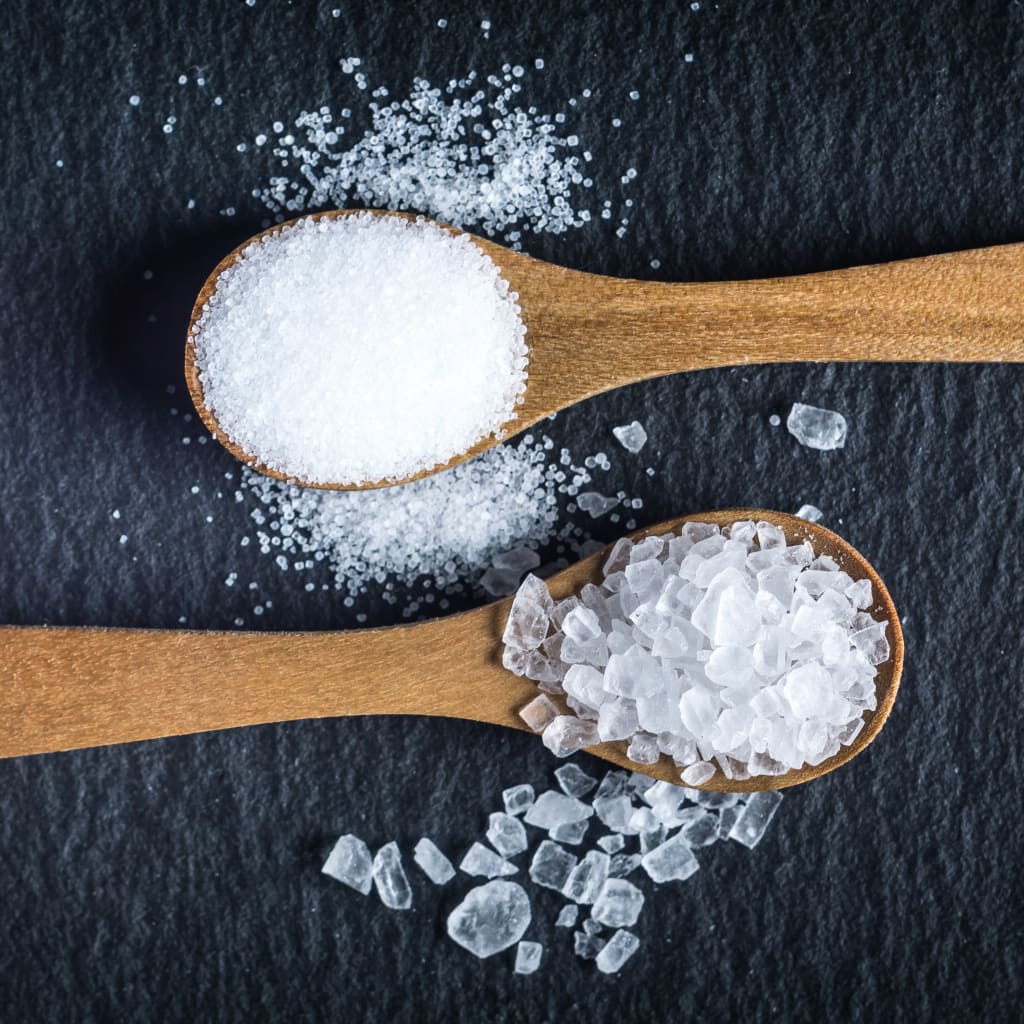Put a stop to the salt! Tips for reducing salt intake in your diet
This is for you!

Stop sprinkling salt on your food! Suggestions for minimizing salt consumption in your diet
In the field of nutrition, salt, commonly known as sodium, has a terrible rep. Your body does, in fact, require salt. The issue is that most people receive far more than they require. When this occurs, it's time to put a stop to the salt!
You can get high blood pressure, heart disease, and stroke if you consume too much sodium. Sodium can be found in a variety of foods, including the ones listed below:
Some foods contain it in their natural state.
It's used both in the kitchen and when eating.
The majority of processed foods are high in salt.
According to the USDA's Dietary Guidelines, no more than 2,300 milligrams (about one teaspoon) of sodium should be consumed per day. The Centers for Disease Control and Prevention (CDC) has an excellent visual that shows how quickly sodium intake may mount up during the day. It doesn't take much to exceed 2,300 milligrams, as you can see.
Follow these ten suggestions to cut back on salt and stay under the recommended sodium intake in your diet.
Consume more fresh fruits and vegetables, as well as low-fat dairy products. Bananas, spinach, low-fat yogurt, and potatoes are high in potassium and low in salt. This is an excellent combo for lowering blood pressure and improving cardiovascular health.
When it comes to frozen and canned vegetables, choose for low-sodium or no-salt varieties. Rinsing canned vegetables before eating them can also assist to limit salt intake.
Read the nutrition label when purchasing processed goods. Choose the option with the least amount of sodium. Low-sodium foods have a salt content of 140 milligrams or less per serving. Even better, foods with a salt content of 35 milligrams or fewer are called very low sodium.
Fresh or frozen chicken, shellfish, and lean meats are better than fully prepared and ready-to-eat goods.Fully prepared and ready-to-eat foods are inferior than fresh or frozen poultry, seafood, and lean meats.
Cooking at home should be done more frequently. When you eat at home, you have control over what goes into your food, providing you the ability to reduce salt intake.
Salt should not be used as a seasoning. Instead, use non-salted lemon juice, garlic, pepper, and other herbs and spices.
Pick your condiments carefully. Salad dressing, ketchup, and soy sauce, for example, might contain a lot of sodium. Read the nutrition label or find out how to produce a salt-free version at home.
Before you salt your food, give it a taste. You may discover that you didn't require the additional salt in the first place.
Before you go out to eat, look up the menu online and look for low-sodium options. Before your food is served, request that the cook not salt it.
Keep portion quantities in mind. More sodium is likely to be found in larger quantities. Portion control will aid not only in reducing sodium intake, but also in maintaining a healthy weight.
Salt, often known as sodium, has a bad reputation in the nutrition world. Salt is, in fact, required by your body. The problem is that the majority of people are given considerably more than they need. When this happens, it's time to stop using salt!If you drink too much sodium, you risk developing high blood pressure, heart disease, and stroke.
This low-sodium Greek pasta salad recipe is a fantastic option for dinner. It's really tasty without all the additional salt, thanks to fresh ingredients and low-sodium seasoning. To make it a MyPlate dinner, serve it with grilled chicken and a bowl of fresh fruit. Enjoy!





Comments
There are no comments for this story
Be the first to respond and start the conversation.